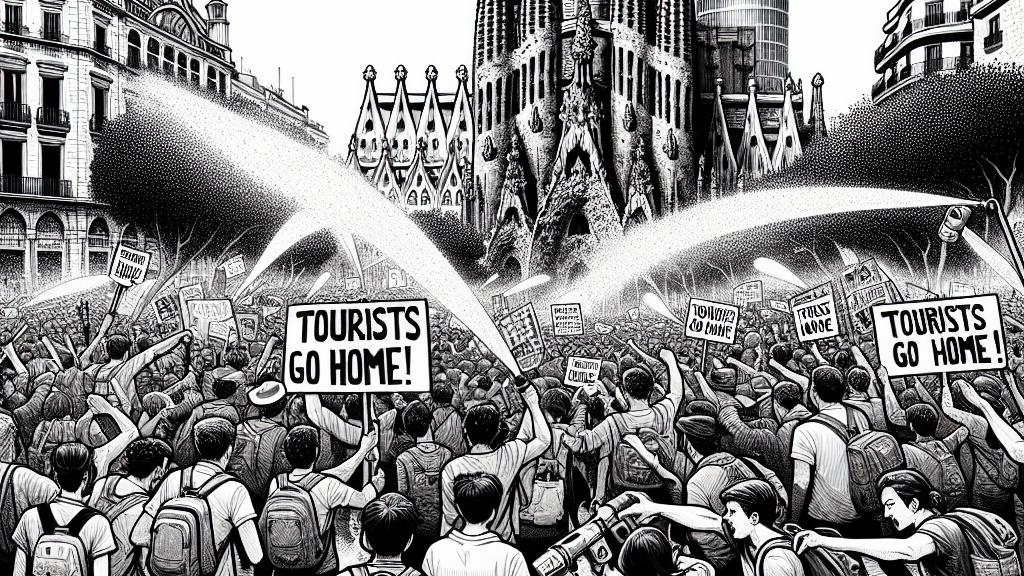Record Tourist Arrivals in Spain Amid Anti-Tourism Protests
Overview
- Spain is experiencing unprecedented tourist arrivals despite increasing local protests.
- Demonstrations in Barcelona reveal significant concerns about tourism's impact on residents.
- Most travelers appear unfazed by protests, focusing on Spain's attractions instead.

Understanding the Heart of the Protests
In the bustling streets of Barcelona, a city renowned for its stunning Gothic architecture and rich history, thousands of protesters have taken a stand. Organized by the Assemblea de Barris pel Decreixement Turístic, these demonstrations aim to send a powerful message: 'Tourists go home!' They are asserting their frustrations about the overwhelming number of visitors who, according to locals, have inflated living costs and strained public services. For instance, recent statistics reveal rents have skyrocketed by nearly 70% over the last decade, pushing many longtime residents out of their homes. The vibrant protests see individuals pouring water from water guns on tourists, a symbolic gesture that starkly showcases their anger. While these demonstrations are intense, many visitors seem undeterred, instead flocking to world-famous spots like La Sagrada Familia and Park Güell, eager to soak in the culture.
Surge in Tourist Arrivals Defies Protests
Interestingly, contrary to the protests' intentions, Spain remains a top travel destination, marking a spectacular rise in tourist arrivals. In August, the nation welcomed a record-breaking 10.9 million international visitors—a striking 7% rise from the same month last year! The Balearic Islands and Catalonia, despite being central to the protests, saw remarkable visitor numbers with 2.4 million and 2.3 million travelers, respectively. A recent survey from Mallorca indicated that approximately 89% of American tourists were either unaware of the ongoing protests or felt that these events had no bearing on their plans. This highlights a fascinating disconnect where many see Spain’s breathtaking vistas and delectable cuisine as more appealing than the surrounding turmoil, proving that travelers often prioritize their experiences over local unrest.
The Economic Importance of Tourism in Spain
Tourism undeniably plays a pivotal role in Spain's economy, contributing around 14% to its GDP, which is even higher in tourist-heavy areas like Mallorca, where it accounts for a staggering 35%. Faced with the challenges of overtourism, the Spanish government is now taking proactive measures. Plans are underway to restrict short-term rental permits, which critics argue will restore housing availability for locals without significantly affecting the tourist market. Moreover, Barcelona's city council is striving to strike a balance between catering to visitors and ensuring that residents' voices are heard. They aim to enhance tourism management through innovative strategies, from using data to monitor visitor flows to implementing regulations targeted at preserving the city's charm. Ultimately, the pressing question remains: Can Spain maintain its appeal as a prime travel destination while fostering a sustainable environment that respects both its inhabitants and the natural beauty that draws millions each year?

Loading...